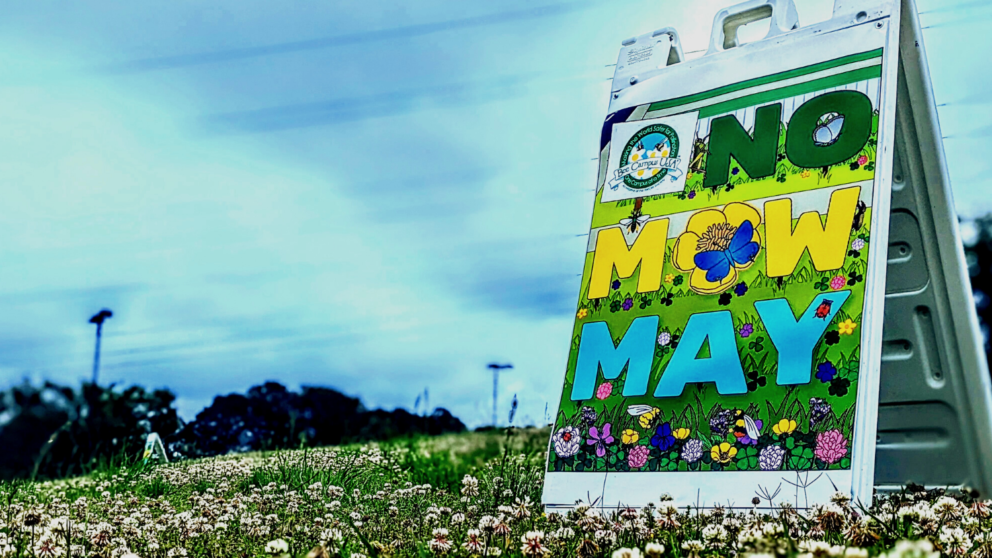Have you heard the buzz? As a certified Bee Campus USA, NC State is participating in No Mow May.
This popular global conservation program promotes the environmental benefits of mowing grass less frequently. NC State Grounds Services will be implementing No Mow May in the green spaces between Sullivan Drive and Wolf Village Apartments’ parking lot areas through May 31.
Here are some of the benefits of less mowing:
Boost Bee Habitats
NC State Extension notes that honey bees are the most important insect pollinator for crops grown in North Carolina. Dandelions, clover and other plants considered weeds provide essential nutrition for pollinators. Allowing these early spring plants to bloom provides essential nectar and water supplies that are normally limited at this time of year. These resources help boost pollinator populations.
Breathe Cleaner Air
Research has found that operating a gas-powered lawnmower for one hour can create as much air pollution as a 100-mile car ride. Stowing the lawnmower this month will reduce air pollution, which accounts for 5% of the nation’s air pollution according to the U.S. Environmental Protection Agency.
Hear Nature’s Call
The noise levels of gas lawnmowers are harmful to both humans and wildlife. Leaving the lawnmower parked this May allows everyone to clearly hear nature’s soundscape.
Promote Lawn Health
Longer blades of glass provide protection from summer heat stress and damage to new growth. No Mow May can help your lawn be more resilient to drought as the longer the blade, the more surface area there is for photosynthesis. This process provides the energy needed for grass to grow stronger roots. Root health is also supported by dandelions, which can help aerate and break up North Carolina’s clay soils.
Learn more about the importance of protecting pollinators, including a map of campus gardens and apiaries, by visiting sustainability.ncsu.edu/campus/pollinators.
